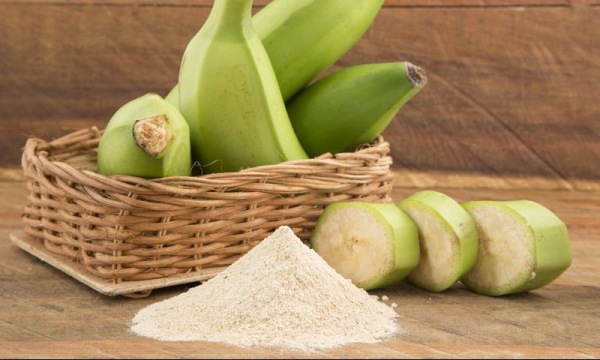- This topic is empty.
- AuthorPosts
- January 21, 2025 at 11:16 pm #543221
 Agric4ProfitsKeymaster
Agric4ProfitsKeymaster
Plantains are a staple crop in many tropical regions, providing essential nutrients and income for farmers.
To achieve healthy plantain growth and maximize yield, the application of the right plantain fertilizer is crucial.
This article explores the types of fertilizers suitable for plantains, their benefits, and best practices for application to ensure robust and productive plants.
1. Understanding Nutritional Needs of Plantains
Plantains require a balanced diet to thrive, with specific nutritional needs that vary throughout their growth stages.
Key nutrients include nitrogen (N), phosphorus (P), and potassium (K), often referred to as NPK. Nitrogen is essential for vegetative growth, promoting lush foliage, while phosphorus supports root development and flowering.
Potassium plays a critical role in overall plant health, enhancing resistance to diseases and improving fruit quality.
Understanding these needs is the first step in selecting the appropriate plantain fertilizer to ensure optimal growth and production.
2. Types of Fertilizers for Plantains
Several types of fertilizers can be used for plantains, each offering distinct advantages. Organic fertilizers, such as manure or compost, are excellent for improving soil structure and providing a slow release of nutrients.
They enhance microbial activity and promote sustainable farming practices. Chemical fertilizers, on the other hand, provide targeted nutrient applications and can quickly correct deficiencies in the soil.
Granular and liquid fertilizers are commonly used, with granular forms being ideal for basal application, while liquids can be applied as foliar feeds for immediate nutrient uptake. Choosing the right type depends on the specific needs of the soil and the plants.
3. Timing and Application Methods
The timing and method of applying plantain fertilizer significantly affect its effectiveness. Generally, fertilizers should be applied at key growth stages: at planting, during the vegetative phase, and before flowering.
Basal application at planting provides essential nutrients as the plants establish. During the vegetative phase, additional nitrogen is crucial for leaf growth, while potassium is often added before flowering to enhance fruit set. Application methods include broadcasting, banding, and foliar feeding.
Broadcasting is suitable for organic fertilizers, while banding is effective for concentrated chemical applications. Foliar feeding allows for rapid nutrient absorption during critical growth periods.
4. Soil Testing and Nutrient Management
Before applying fertilizers, conducting a soil test is essential for understanding nutrient levels and pH. Soil testing provides valuable information on existing nutrient availability and helps farmers make informed decisions about fertilizer application.
Based on the test results, specific amendments can be recommended to correct deficiencies and optimize soil health.
Implementing a nutrient management plan that includes regular soil testing, crop rotation, and organic amendments will enhance the effectiveness of plantain fertilizer, ensuring sustainable growth and reducing the risk of over-fertilization.
5. Environmental Considerations
While fertilizers play a vital role in plantain cultivation, it’s important to consider their environmental impact.
Over-application can lead to nutrient runoff, contributing to soil and water pollution. Sustainable practices, such as integrated nutrient management, can help mitigate these risks.
This approach combines organic and inorganic fertilizers, prioritizes soil health, and promotes the efficient use of resources.
Employing cover crops and crop rotation can also improve soil fertility and reduce dependency on chemical fertilizers.
By adopting environmentally friendly practices, farmers can ensure the long-term sustainability of their plantain farms.
In conclusion, the right plantain fertilizer is crucial for achieving optimal growth and yield in this valuable crop.
Understanding the nutritional needs of plantains, selecting the appropriate fertilizer type, timing applications correctly, and considering soil health and environmental factors are all essential components of successful plantain cultivation.
By implementing these practices, farmers can enhance their plantain production while promoting sustainable agricultural methods, ultimately leading to healthier crops and more prosperous farming operations.
- AuthorPosts
- You must be logged in to reply to this topic.





